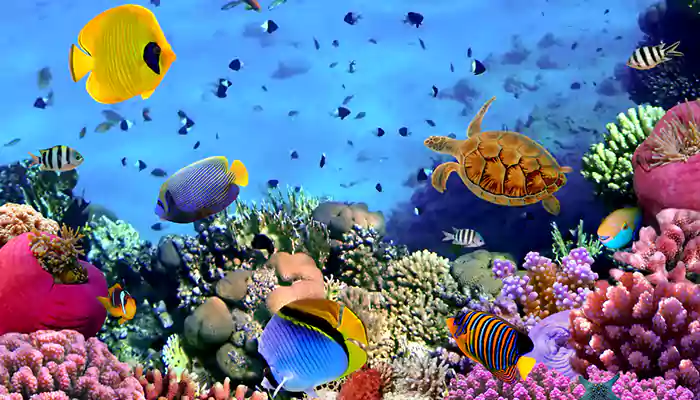Earthly Noises And How It Affects Marine Life
The ill-effects of human-made noise on marine life, and why there is a dire need to look into the matter.
- Rinks
- 09 September, 2024
- 2 mins ago

Earthly Noises And How It Affects Marine Life
The ill-effects of human-made noise on marine life, and why there is a dire need to look into the matter.
When we think of the ocean's serenity, one thing that soothes our mind is the complete lack of sound. The uniform waves bubbling over the surface of water rejuvenates any soul who takes the aid of sea to calm their soul. But do we contribute to the calm of the marine too? Quite the opposite.
A team of researchers have sought out to analyze the effect of human-made sound on marine life. From disrupting the physiological behaviour to the sea creatures' mortality, human-made noise has become a global concern for environmentalists and marine biologists.
To reflect on how marine creatures react to sound, most of the natural sound comes from rainfall patters on the surface. The acoustic environment is now plagued by human interruptions. Researcher, Carlos M. Duarte, a distinguished professor at King Abdullah University of Science and Technology (KAUST) published a journal which is an eye-opener to global prevalence and intensity in the noise that affects the marine habitat. In particular, noise from shipping, fishing, developing infrastructure, and silencing animals' sound dominated the seas.

Ben Halpern, the co-author of the director and study at the National Center for Ecological Analysis and Synthesis at UC Santa Barbara, The soundscape is a powerful indicator of health and environment. Like we have lost the sound of nature in city life, we are slowly losing out on the oceans' natural essence.
When we think of the challenges that we humans have pushed upon marine life, overfishing, coastal development, ruining coral reefs and destroying kelps and seagrass comes first to our mind. Climate change has further drifted sea creatures into finding new conditions to live on. The call home for many marine animals is no more audible due to the sound generated by humans.
The Anthropocene marine environment is polluted by man-made noise and has to be restored along sonic dimensions. The current frameworks to recover ocean health ignore the necessity to alleviate noise as a pre-requisite for a healthy ocean.
By the laws of physics, sound travels faster through the dense medium. Marine animals are way more sensitive to sound than we are. They use prominent sensorial signals that help guide all aspects of ecological behaviour. This increases a dire need to bring it as an issue before it completely disrupts the balance of nature.










